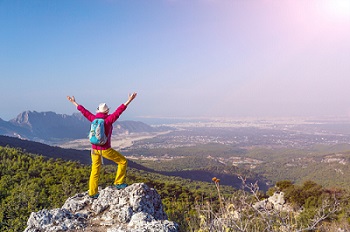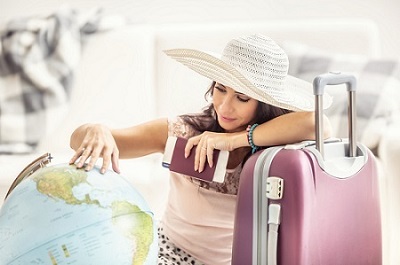Is Kenya Safe to Visit
Is Kenya Safe to Visit? Get expert advice on travel safety and common risks and the latest updates on what areas to avoid when visiting Kenya.
Is Kenya Safe to Visit? Essential Travel Advice & Safety Tips
-
Kenya has security challenges, including risks of terrorism and violent crime, particularly in high-risk border areas and major cities.
-
Travelers should be vigilant, avoid high-risk areas, and stay informed about local safety measures while exploring Kenya.
-
Health precautions and travel insurance are essential due to variable medical facilities and potential health risks in the region.
Is Kenya safe to visit? Kenya can be a rewarding destination, but travelers need to be cautious. High-risk areas and potential threats like crime and terrorism exist. This guide covers what you need to know to stay safe.
Understanding the Security Situation
Kenya, like many popular travel destinations, has areas where it's helpful to stay aware of your surroundings. Understanding the local security landscape can empower you to enjoy your trip with more confidence.
Some regions near the borders with Somalia, Ethiopia, and South Sudan are best avoided due to occasional security concerns. Fortunately, Kenya offers many incredible destinations, like the Maasai Mara, Amboseli National Park, and Diani Beach, that are well-traveled and generally considered safe for tourists.
Petty crime, such as pickpocketing, can sometimes increase during the holiday seasons, especially in busy urban areas. Simple precautions, like keeping your belongings secure and staying alert in crowded places, can help you enjoy your travels without worry.
It’s also a good idea to carry your passport or a copy, as identification may be requested by local authorities. Allowing extra time for security checks at airports and public venues ensures a smoother travel experience. By staying informed and mindful, you can focus on enjoying everything Kenya has to offer.
To further enhance your safety, it’s wise to stay aware of your surroundings, avoid large gatherings, and follow local advice. Choosing reputable accommodations and transportation can also add to a smooth and enjoyable travel experience.
Crime and Safety Situation in Major Cities of Kenya
Kenya's major cities, like Nairobi and Mombasa, are vibrant hubs of culture, history, and modern attractions. As in many urban centers worldwide, it's helpful for travelers to stay mindful of their surroundings to enjoy a smooth experience.
Popular tourist areas, especially along the coast during holiday seasons, can occasionally see opportunistic crimes like bag-snatching. Busy locations, such as bus and railway stations, are common spots where pickpockets may target distracted visitors. Keeping personal belongings close and using anti-theft bags can help minimize any risk.
To further enhance safety, it's wise to avoid isolated areas after dark and opt for daytime travel when possible. Exploring in groups and using reputable transportation services, like registered taxis or ride-hailing apps, can also add peace of mind.
While incidents involving criminals impersonating police officers are rare, it’s good practice to ask for proper identification if approached. Avoid handing over money or personal information unless you're certain of the situation.
By staying aware and following these simple precautions, travelers can confidently explore Kenya’s urban landscapes and enjoy everything the country has to offer.
Safety in Coastal Regions
Kenya’s coastal regions, known for their stunning beaches, historic sites, and vibrant resorts, attract visitors from around the world. While these destinations offer incredible experiences, it's helpful for travelers to be aware of local safety considerations to make the most of their stay.
Before visiting areas like Lamu Island or remote coastal beach resorts, it's a good idea to check with local authorities or your accommodation about current safety conditions. Many tourist-friendly locations, such as Diani Beach, Malindi, and Watamu, are popular and well-monitored, making them enjoyable for travelers.
In some coastal areas, mobile phone service can be less reliable, so having an alternative communication plan is wise. Letting someone know your itinerary and expected return times can help ensure safety while exploring.
Exercising increased caution and staying informed in Kenya’s coastal regions allows travelers to enjoy the stunning beaches and cultural richness while minimizing potential risks.
Political Unrest and Protests
According to the U.S. Department of State, political protests and demonstrations occasionally occur in Kenya, particularly around election periods. So, travelers should exercise caution in Kenya. While many remain peaceful, some may get escalated, and can lead to civil unrest, road closures, and, in some cases, injuries.
Travelers are advised to avoid large gatherings and monitor local media for updates. Demonstrations may impact transportation, including access to airports and major roads. Following guidance from local news and staying informed through reliable sources can help you navigate any disruptions safely.
Safe Travel Practices
Safe travel practices are essential for ensuring a secure and enjoyable experience in Kenya. A key tip is to use reputable tour operators when booking safari tours. Buying from touts can lead to unsafe and unregulated experiences, so it’s best to avoid them.
In social settings like bars or clubs, avoid accepting drinks or food from strangers to prevent potential safety risks. You may also avoid areas where armed robbery can happen. This simple precautions can help prevent incidents of drink spiking and other dangers.
When chartering private aircraft in Kenya, check the aircraft condition and crew qualifications to ensure safety. For certain hikes, hiring a local guide familiar with the terrain and safety protocols is required.
Being aware of your surroundings, and taking these safety measures can significantly enhance your travel experience in Kenya.
Health and Medical Facilities
Kenya offers a range of medical facilities, particularly in major cities and urban centers, where private hospitals provide quality care. Before traveling, make sure you are fully vaccinated against common diseases like measles and hepatitis A. Malaria prevention medication is also advisable for those visiting certain areas.
Vaccination against yellow fever is mandatory for travelers arriving from countries with a risk of transmission. Access to rabies treatment may be limited, so pre-exposure vaccination is advisable for those at risk. Cholera vaccination is suggested for travelers heading to areas with active transmission.
In case of medical emergencies, reach the nearest major hospital rather than relying on ambulance services, which can be unreliable if the location is not easily accessible. Due to the variable quality of medical facilities, travel insurance that includes medical evacuation is highly suggested. Having a list of local healthcare facilities and doctors can also be beneficial in emergency situations.
Kenya also has specialized medical support services, such as the Gender Violence Recovery Centre, which provides critical care and counseling to survivors of violence in Kenya, offering an essential resource for those in need.
Local Laws and Customs
Understanding local laws and customs can make your visit to Kenya smoother and more enjoyable. Authorities take certain regulations seriously, so staying informed ensures you can focus on enjoying your trip.
Strict penalties apply for possessing illegal drugs, with the potential for long-term imprisonment. Travelers should also be aware that same-sex relationships are treated differently under Kenyan law, and smoking is restricted to designated areas, with fines for violations.
Dressing modestly outside of resort areas, particularly near religious or rural sites, is a sign of respect for local culture. It’s also wise to carry a copy of your passport for identification, as authorities may occasionally request it.
Photography near government buildings is generally discouraged, and some prescription medications may be restricted, so checking regulations before travel can help avoid misunderstandings.
By respecting local customs and staying informed, travelers can fully appreciate Kenya’s rich cultural landscape while ensuring a hassle-free experience.
Road and Public Transportation Safety
Kenya offers various transportation options, from long-distance buses to public transportation in major cities. Travelers can enhance their experience by choosing reputable tour operators and transport services that prioritize safety. Major highways connecting urban centers are well-traveled, and key routes to tourist locations and national parks are accessible.
For those driving, an international driving permit is suggested. While roads in urban centres are generally in good condition, some rural routes may be poorly maintained, so planning ahead is advisable. It’s best to drive during daylight hours and stay informed about road conditions by monitoring local news and updates from Kenyan authorities.
When using public transportation, opt for registered transport providers for long-distance buses or taxis. Ride-sharing services and hotel-arranged transport can be convenient in tourist areas and coastal beach resorts. Keeping doors locked and valuables secure while traveling ensures a smooth journey.
Wildlife Viewing and Safari Safety
Kenya’s national parks and wildlife are a major draw for tourists, but safety during wildlife viewing and safaris is paramount. Never exit the vehicle without the presence of armed guards, as this can significantly reduce the risk of danger from wild animals.
Follow your safari guide’s instructions to ensure personal safety during wildlife excursions. On a self-driving safari, exit the vehicle when directed by your guide in designated safe areas. Maintaining a safe distance from wild animals is crucial during these excursions.
Reputable tour operators generally take visitors to areas deemed secure, minimizing exposure to potential dangers. Engaging in the trade or purchase of endangered wildlife is punishable by heavy fines or imprisonment. Follow park regulations and advice from guards to ensure a safe and enjoyable safari experience.
Emergency Contacts and Assistance
In an emergency, knowing who to contact can make a significant difference. In Kenya, you can reach emergency services by calling 999. Alternatively, dial 112 or 911 for assistance. These numbers connect you to local police, medical facilities, and other emergency assistance.
The U.S. Embassy in Nairobi offers various forms of assistance to U.S. citizens, including help contacting local authorities and providing information about safety and security. This can be particularly useful if you find yourself in a difficult situation far from home.
The Kenya Tourism Federation also provides tourist advice and emergency help, offering another layer of support for travelers. Whether you need medical evacuation or assistance from local authorities, these resources are invaluable.
Familiarizing yourself with these emergency contacts and understanding the available assistance allows you to travel with greater peace of mind, knowing help is just a phone call away.
Conclusion
Kenya is a country of incredible beauty and adventure, but like any destination, it comes with its own set of risks. By understanding the security situation, being aware of the threat of terrorism, and taking precautions against crime in major cities, travelers can significantly enhance their safety.
Adhering to safe travel practices, staying informed about health and medical facilities, and respecting local laws and customs are essential steps to ensure a smooth and enjoyable journey. Whether you’re navigating the roads, participating in a safari, or simply enjoying the coastal regions, being prepared and vigilant is key.
Emergency contacts and assistance services provide an additional layer of security, ensuring that help is available when needed. By planning ahead and staying informed, you can focus on the unforgettable experiences that Kenya has to offer.
Frequently Asked Questions
1. How do I stay safe in crowded places in Kenya?
To stay safe in crowded places in Kenya, remain vigilant and avoid large crowds whenever possible. Be cautious in public areas like shopping malls, restaurants, and transport hubs to minimize risks.
2. What should I do if I fall ill in Kenya?
If you fall ill in Kenya, promptly go to the nearest major hospital for emergencies, and make sure you have travel insurance with medical evacuation coverage. This ensures you get the necessary care without added stress.
3. Are there any areas in Kenya that I should avoid?
It is advisable to avoid high-risk areas near the borders with Somalia, Ethiopia, and South Sudan due to potential attacks and kidnappings. Staying informed about current safety situations in these regions is crucial for your safety.
4. What are the penalties for drug possession in Kenya?
Possession of illegal drugs in Kenya can result in severe penalties, including up to 10 years in prison. In contrast, drug trafficking can lead to life imprisonment.

Travel Assistance Wherever, Whenever
Speak with one of our licensed representatives or our 24/7 multilingual insurance advisors to find the coverage you need for your next trip. Contact Here



